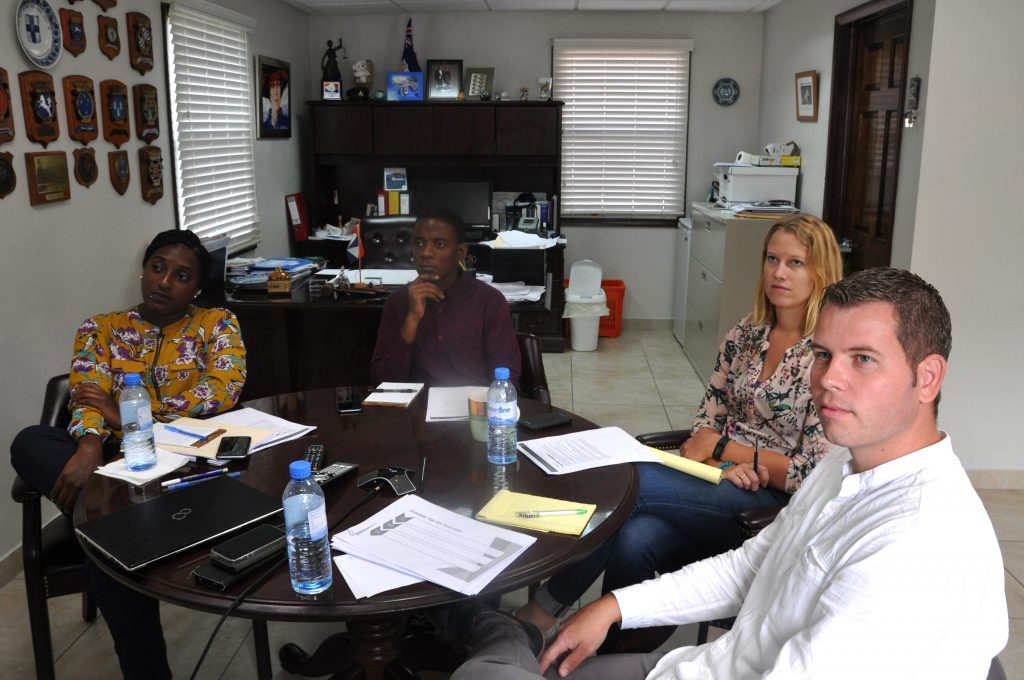Saba completes important actions in disaster management

The Bottom, SABA—In an effort to continuously improve disaster management on Saba, the Public Entity Saba completed two important actions last week: a training for the information managers and the successful installation of the satellite system.
On Thursday December 20, the Saba Telecommunications Company Satel had a successful session to implement the satellite system. With the (financial) support of the Dutch Ministry of Economic Affairs and Climate (EZK), Satel acquired a satellite ground station that has been attached directly to the existing system.
The satellite system provides for an acute emergency connection for essential communication, for example by the Island Governor, with the outside world in case the regular communication system doesn’t work as was the case with hurricane Irma. The 2017 hurricanes reaffirmed that the means of communications need to be improved.
Dutch Minister of Justice and Security Ferd Grapperhaus in a letter to the Second Chamber of the Dutch Parliament on December 11, 2018 regarding the evaluation report on the crisis response to hurricanes Irma and Maria, mentioned the improvements in Saba’s disaster management, based on the lessons that were learned from the 2017 hurricanes and the island’s policy plan disaster management .
One of the measures that Saba took to strengthen the crisis organization, aside from the acquiring of a satellite system, was the recruiting of information managers. On Wednesday December 19, the Public Entity Saba organized a training for the information managers.
Information managers
An information manager has an important role in the disaster management organization since he or she supports one of the two disaster management teams, the Island Policy Team (EBT) or the Command on Place of Incident (CoPI), with the flow of information. Information managers keep track of action points during incidents, write situation reports during the incident, help visualize information and make sure that the BT or COPI and Emergency Support Function (ESF) group have the correct information in order to react quicker and make sure everything is done.
The training for the information managers focused on the crisis management structure within the Dutch Kingdom, the different roles and responsibilities and techniques to collect information and to organize this in a such way that facilitates decision-making. As part of the training, multiple video conferences were organized with the National Coordination Center (NCC) of the Ministry of Justice and Security), the Departmental Coordination Center Crisis Management of the Ministry of Infrastructure and Water management (DCC-IenW) and the Kingdom Representative.
The training was a first step in the professionalization of the information managers. In 2019, this new function will be part of the disaster management organization and the different exercises. Present at the training on December 19 were three information managers: Alexandria Hassell, Lionel Charles and Sarah van der Horn. Civil servants were invited a while back to indicate whether they were interested in becoming an information manager. The training was facilitated by Disaster Management Advisor Mark den Hollander.












